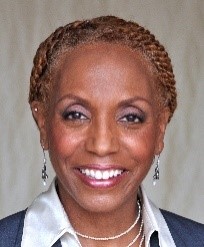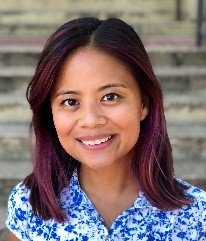< Go Back to Full Educator | Resource List
February 2020 Educator | Resource of the Month
The Center for Diversity and Social & Economic Justice(Opens in a new window) Educator|Resource is a monthly feature that highlights curricular resources and social work educators who address diversity and justice.
Equity-minded Competence in Higher Education

Despite some success, racial and ethnic equity in higher education has not significantly advanced. Although many programs have provided support and raised awareness on issues of diversity, the majority have not yet addressed the systemic issues of equity and power. New thinking on achieving equity in higher education has evolved rapidly in the last few years. In the first of a two-part Educator|Resource we draw on a wealth of research-based strategies that can be applied to faculty hiring, student success, and curriculum development. We also introduce rich resources that can support social work educators and administrators in creating an equity-minded practice and advancing institutional change. The second part will coincide with the 2020 Annual Program Meeting(Opens in a new window) and provide exemplars of social work programs that are implementing equity plans.
Resources
About the Educators
 |
Dr. Renée Smith-Maddox(Opens in a new window) is a clinical professor and Diversity Liaison at the University of Southern California Suzanne Dworak-Peck School of Social Work. More recently she served as the Associate Dean for Diversity, Equity, and Inclusion, providing leadership and oversight for strategic priorities and initiatives. |
 |
Lalaine Sevillano, MSW, is a doctoral student at the Steve Hicks School of Social Work University of Texas at Austin. Lalaine is passionate about equity and serves on the School’s Committee on Diversity and Inclusion and the University’s Division of Diversity and Community Engagement. |
 |
Dr. Yolanda C. Padilla(Opens in a new window) is the director of the CSWE Center for Diversity and Social & Economic Justice and the Clara Pope Willoughby Centennial Professor at the University of Texas at Austin Steve Hicks School of Social Work. Her expertise is in social inequality and multicultural practice. |
Educator Q&A
What underlying mechanisms of equity make it more likely than diversity to achieve social justice, and why does it matter to minoritized students?
Social work doctoral student Lalaine (Lainey) Sevillano shares her reflections on how dismantling her ecology of inequalities requires equity across macro, meso and micro levels.
Resisting the Ecology of Inequality as a Filipinx Woman, First Generation, Immigrant, Student, and Mother
Three sisters were walking by the river when they noticed babies floating downstream. The first sister quickly jumped into the river and began to scoop the babies out. The second sister also jumped in and began to teach the babies how to swim. The third sister did not jump in but instead began to walk upstream to investigate the cause of this phenomenon. They often teach this parable in social work to highlight the various ways to intervene on the micro, meso, and macro levels. Initially, I used this parable as a metaphor to describe my professional goals. By earning my doctorate and becoming a professor, I will simultaneously embody all three sisters: jumping in to assist vulnerable populations, teaching others how to effect change, and investigating social issues to inform policy and practice. However, the more I progress toward my goal the more I realize that there is a different meaning to this parable. Drawing from Carter’s (2018) ecology of inequality and intersectionality theory (Collins, 2015; Crenshaw 1991), I reflect on my path to pursuing a doctorate and how micro, meso, and macro level inequalities affected my educational journey. Read the full Q&A(Opens in a new window).
The views expressed in the Educator|Resource are those of the educator(s) and do not necessarily reflect the views of the Council on Social Work Education.
Interested in contributing to the Educator | Resource of the Month? Please contact Dr. Yolanda Padilla, CSWE Diversity Center Director, at ypadilla@cswe.org.
